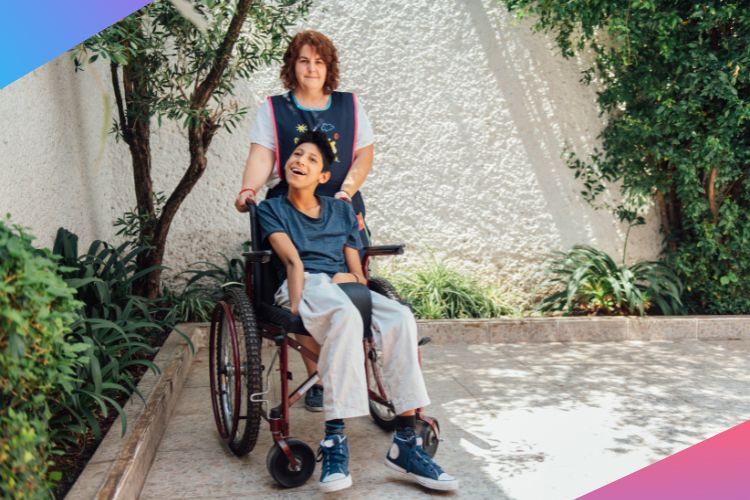This guide explores how to become an independent NDIS support worker, covering the required qualifications, registration process, and business setup, along with tips for success.
The NDIS provides vital support to individuals with disabilities, allowing them to lead independent and fulfilling lives. While many support workers operate through registered providers, an increasing number are choosing to become independent NDIS support workers—offering greater flexibility, higher earning potential, and personalised client care.
What Is an Independent NDIS Support Worker?
An independent NDIS support worker is a self-employed professional who provides direct assistance to NDIS participants without being tied to an agency or service provider. They may offer services such as:
- Personal care (bathing, dressing, grooming)
- Household assistance (cleaning, cooking, errands)
- Community access (transport, social support, outings)
- Therapy support (helping with physiotherapy or occupational therapy exercises)
- Skill-building and education
Unlike agency-employed workers, independent support workers set their own schedules, rates, and service offerings while managing their own client relationships.

What Are the Benefits of Being an Independent NDIS Support Worker?
Going independent under the NDIS offers multiple advantages:
1. Higher Earning Potential
Since you eliminate agency fees, you can charge your own rates and retain a greater share of your income.
2. Flexibility and Work-Life Balance
You decide when, where, and how you work, providing a better work-life balance.
3. Personalised Client Relationships
Independent support workers build direct, long-term relationships with clients, leading to more meaningful support experiences.
4. Business Ownership and Growth
As a self-employed professional, you can scale your business, take on more clients, and even hire subcontractors if desired.
Related: How Much Does It Cost to Become an NDIS Provider?
What Qualifications Do You Need to Become an Independent NDIS Support Worker?
Unlike agency-employed support workers, independent NDIS support workers do not necessarily require formal qualifications. However, having relevant training and certifications can boost your credibility and help you secure more clients.
Essential Qualifications and Certifications:
- Certificate III or IV in Individual Support (Disability, Aged Care, or Community Services) – Highly recommended
- First Aid & CPR Certificate – Mandatory for most clients
- Working with Children Check (WWCC) – Required if working with minors
- National Police Check – Ensures trustworthiness
- NDIS Worker Screening Check – Mandatory for unregistered and registered workers
- COVID-19 Infection Control Training – Sometimes required by participants
While a formal qualification is not always required, having at least a Certificate III in Individual Support improves your job prospects significantly.

Should You Register as an NDIS Provider?
There are two ways to work as an independent NDIS support worker:
- Registering as an official NDIS provider
- Working with self-managed and plan-managed participants (without registration)
Pros and Cons of Registering as an NDIS Provider
| Aspect | Registered NDIS Provider | Non-Registered (Unregistered) Worker |
|---|---|---|
| Access to Clients | Work with all NDIS participants | Limited to self-managed & plan-managed clients |
| Compliance Requirements | Strict audits & compliance | Fewer regulations |
| Business Growth | Greater trust & credibility | Easier to start |
| Administrative Burden | High (regular reporting required) | Low (direct agreements with clients) |
| Earning Potential | Standard rates set by NDIS | Set your own rates |
Most independent support workers start unregistered since it allows them to work quickly with fewer bureaucratic hurdles. However, registering as a provider gives you access to a wider range of clients and additional funding opportunities.
How to Set Up Your Independent NDIS Business?
Step 1: Choose a Business Structure
You can operate as:
- Sole Trader (most common for independent workers)
- Partnership (if working with another person)
- Company (if scaling to a larger business)
Step 2: Get an ABN (Australian Business Number)
You must register for an ABN through the Australian Business Register.
Step 3: Get the Required Insurance
- Public Liability Insurance – Protects you if a client is injured during your service
- Professional Indemnity Insurance – Covers you if a client makes a claim against your service
- Personal Accident Insurance – Helps cover medical expenses in case of work-related injury
Step 4: Create a Service Agreement
A clear NDIS Service Agreement outlines:
- Services you provide
- Pricing and payment terms
- Cancellation policy
- Rights and responsibilities of both parties
Step 5: Market Your Services
- Create a professional profile on platforms like Mable, Hireup, or Careseekers
- Build a website or social media presence
- Network with disability service coordinators

6. How to Find Clients as an Independent NDIS Support Worker?
Where Can You Find Clients?
- NDIS-related platforms (Mable, Hireup, Careseekers)
- Local community groups & disability organisations
- Social media marketing (Facebook groups, LinkedIn)
- Website and SEO
- Word-of-mouth referrals from current clients
- Partnering with plan managers & support coordinators
Tips for Attracting Clients
- Offer competitive pricing while maintaining high service quality
- Get positive testimonials and reviews
- Specialise in a niche (e.g., autism support, mental health assistance)
- Be responsive and professional in communication
Frequently Asked Questions
Do I need to register with the NDIS to work independently?
No, you can work with self-managed and plan-managed participants without registering.
How much can I earn as an independent NDIS support worker?
Earnings vary, but most workers charge $40-$80 per hour, depending on experience and services.
Can I work independently while studying?
Yes! Many students start part-time and transition into full-time roles after graduation.
Conclusion
Becoming an independent NDIS support worker gives you the freedom to shape your career, earn more, and provide meaningful support. By following this guide—obtaining the right qualifications, setting up your business, and marketing yourself—you can successfully build a thriving independent NDIS support service.
Are you ready to take the first step?

